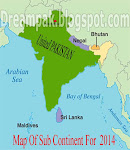Civilian rule returned after the war, when General Yahya Khan handed over power to Zulfikar Ali Bhutto. In 1972, Pakistani intelligence learned that India was close to developing a nuclear bomb, and in response, Bhutto formed a group of engineers and scientists, headed by nuclear scientist Abdus Salam — who later won the Nobel Prize for physics — to develop nuclear devices. In 1973, Parliament approved a new constitution. Pakistan was alarmed by the Indian nuclear test of 1974, and Bhutto promised that Pakistan would also have a nuclear device "even if we have to eat grass and leaves."
During Bhutto's rule, a serious rebellion also took place in Balochistan province and led to harsh suppression of Baloch rebels with the Shah of Iran purportedly assisting with air support in order to prevent the conflict from spilling over into Iranian Balochistan. The conflict ended later after an amnesty and subsequent stabilization by the provincial military ruler Rahimuddin Khan. In 1974, Bhutto succumbed to increasing pressure from religious parties and helped Parliament to declare the Ahmadiyya adherents as non-Muslims. Elections were held in 1977, with the People's Party won but this was challenged by the opposition, which accused Bhutto of rigging the vote. General Muhammad Zia-ul-Haq took power in a bloodless coup and Bhutto was later executed, after being convicted of authorizing the murder of a political opponent, in a controversial 4-3 split decision by the Supreme Court.
PAK ELECTRON LTD
14 years ago


0 comments:
Post a Comment